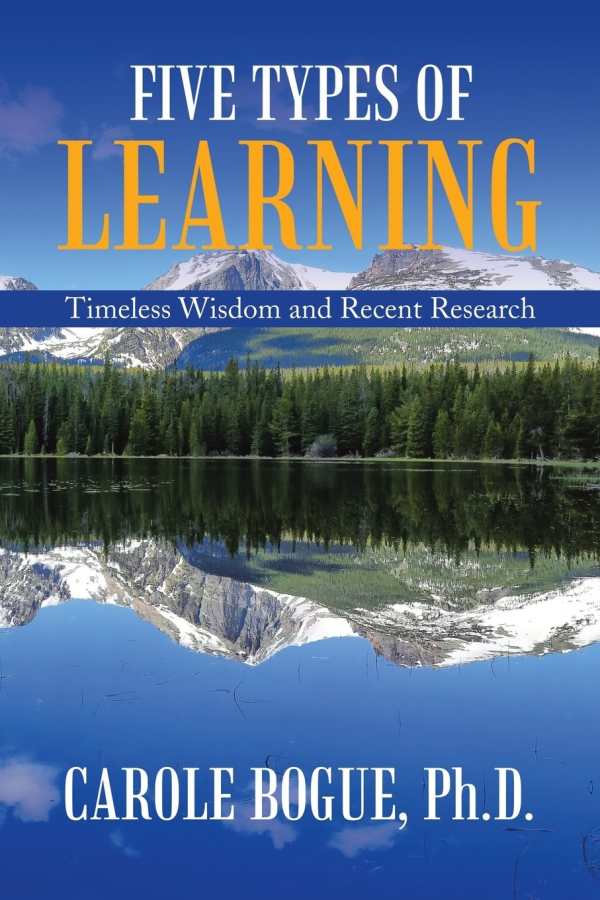Five Types of Learning
Timeless Wisdom and Recent Research
Five Types of Learning is an essential book for educators in any field.
Carol Bogue’s Five Types of Learning: Timeless Wisdom and Recent Research is a tribute to a respected professor’s previously unpublished work. Having studied under Don E. Carline at the University of Colorado–Boulder in the 1970s, Bogue honors the professor’s guidance by preserving and promulgating his wisdom.
After rereading a copy of Carline’s principles of learning, Bogue felt compelled to share the gifted educator’s insights about the best teaching practices and most effective learning approaches.
The book’s organization is at first confusing but comes into focus: its parts present follow-up research to validate Carline’s initially presented points. Along with lengthy lists of references, sections are dense with documentation. Carline’s concepts are backed with evidence, expanding upon his notions of sensory experience, memory-type, motor-type, problem-solving-type, and emotional-type learning.
Complex discussions of Carline’s precepts and high-level pedagogical terminology are best suited to an academic audience. However, sections with accessible examples, particularly the book’s application exercises, offer useful learning tips for parents and others interested in improving lifelong education.
The strongest aspects of the book are its practical learning applications. Instead of focusing on techniques for mechanical memorization, Bogue highlights the value of helping students develop personal attributes and skills and discover ways to make a living as well as prepare for the workplace.
The extended emphasis on the connection between learning and handling real-world problems fortifies the contributions of this work. Bogue illuminates the importance of fostering tolerance, punctuality and self-control—qualities that will impact students’ education and ongoing growth.
Notable and enlightening points include Bogue’s observation that words need to be directly connected to the realities that they represent. She skillfully uses illustrative examples, including seeing a line on a map versus experiencing an actual river, and stresses the enduring impact of field trips. Along with the understanding that music, art, and drama facilitate student learning, Bogue provides thought-provoking questions and prompts for deeper self-awareness—beyond rote learning—for a more meaningful life.
The book offers many valuable takeaways for helping learners process information effectively. Numerous recommendations about the best approaches for presentations are useful beyond the classroom. A discussion about factors that impede education, such as a lack of sleep, poor nutrition, and high stress, provides important reminders for learners throughout their lives. Suggestions about balancing positive feedback while addressing areas for improvement and techniques for instilling a love of reading and for helping learners to become independent thinkers are indispensable.
Five Types of Learning is an essential book for educators in any field.
Reviewed by
Andrea Hammer
Disclosure: This article is not an endorsement, but a review. The publisher of this book provided free copies of the book and paid a small fee to have their book reviewed by a professional reviewer. Foreword Reviews and Clarion Reviews make no guarantee that the publisher will receive a positive review. Foreword Magazine, Inc. is disclosing this in accordance with the Federal Trade Commission’s 16 CFR, Part 255.

